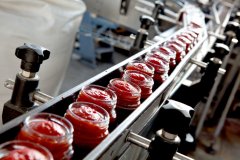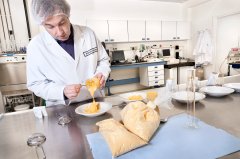
Sustainable Nutritious Foods
How food is produced, consumed, and how much is lost or wasted all heavily shape the health of both people and planet.
At Wageningen Food & Biobased Research we support the development of nutritious foods that are produced sustainably for now and in the future. Leveraging our expertise and cutting-edge facilities, we collaborate with a diverse range of partners within the food industry – from startups to multinationals, agri-processors to food manufacturers. Together, we strive to enhance the safety, healthiness, sustainability, and consumer appeal of food products.
Read more
Working on solutions
Wageningen Food & Biobased Research is working on various solutions within this research programme:
-

Microbes Relevant to Food Production
Microbes play a dual role in food production, leading to beneficial but also harmful effects. They are employed to produce food and ingredients in fermentation processes. At the same time, growth and contamination of spoilage and pathogenic microorganisms is an important cause of food loss or even illness.
-

Smart and Sustainable Food Processing
The world population is expanding and the demand for safe, healthy, sustainable food with less packaging, loss and waste is growing quickly. Worldwide food production is under huge pressure to change towards smart industry practices. Smart digital technologies are opening a multitude of opportunities for optimizing production processes, making them more sustainable and more flexible.
-

Innovative Food Formulation
Foods that are energy dense and nutrient poor are widely available at different points of sale. As a result, many people are eating large amounts of food high in fat, sugars and salt/sodium; this leads to unhealthy diets, that may result in a wide range of illnesses. At the same time, the need for sustainable and safe food ingredients in an unsettled world gives tremendous challenges to the food industry. In this context, the science of food formulation is crucial for a transition towards healthy and sustainable diets.